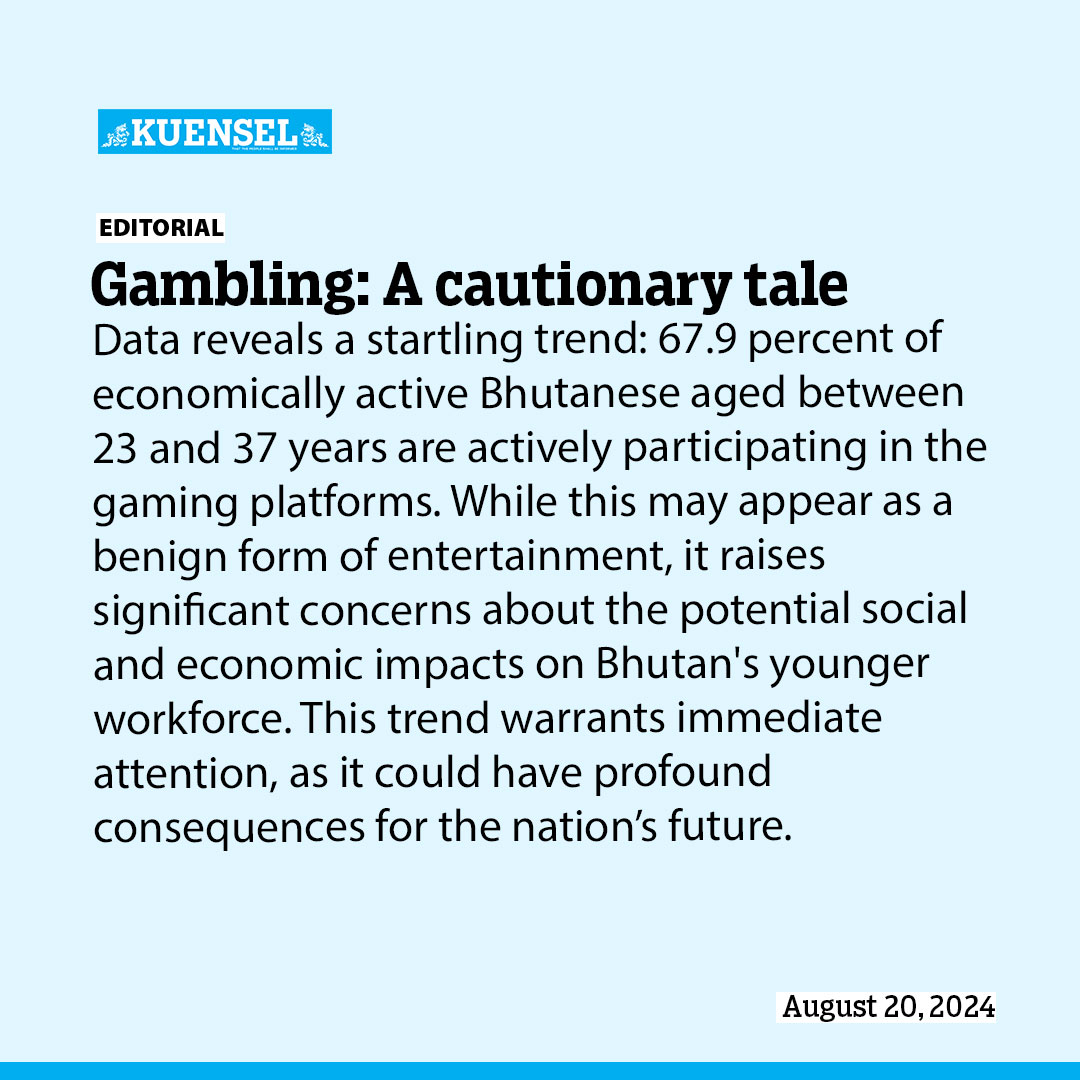
Data reveals a startling trend: 67.9 percent of economically active Bhutanese aged between 23 and 37 years are actively participating in the gaming platforms. While this may appear as a benign form of entertainment, it raises significant concerns about the potential social and economic impacts on Bhutan’s younger workforce. This trend warrants immediate attention, as it could have profound consequences for the nation’s future.
The widespread participation in gaming platforms suggests a considerable diversion of disposable income toward gambling. For young adults, many of whom are in their prime working years, this diversion poses a risk of financial instability. Funds that could be allocated for savings, investments, or essential expenditures are instead being channelled into gambling activities. If unchecked, this can lead to a dangerous cycle of financial overextension for many people. The temptation to continue gambling, often fuelled by the prospect of recovering losses results in borrowing money, plunging individuals into a cycle of debt that is difficult to escape.
Beyond the economic implications, the social and psychological impacts of such widespread gaming participation cannot be ignored. The high rate of involvement indicates a potential risk of gambling addiction, a serious issue with far-reaching consequences. Addiction strain relationships, reduce work productivity, and trigger mental health issues such as anxiety and depression. As more young people engage in gambling, there is a real danger of eroding the social fabric. The allure of “easy money” can undermine the ethic of hard work and perseverance, values that are essential for long-term stability and success. The risk associated with this continuing trend is that we may witness a cultural shift that prioritises quick financial gains over more sustainable and ethical practices.
So what, some might ask.
The impact on national development is another area of concern. Economically active individuals are the backbone of Bhutan’s growth and development. If a significant portion of this demographic is distracted or financially strained by gambling, the consequences could be serious. Reduced productivity, coupled with a less engaged workforce, could ultimately slow the nation’s economic progress. The real danger is that it could contribute to a widening gap between the economically stable and those struggling with debt and threaten to destabilise the nation’s social and economic fabric.
There are also ethical and moral concerns that must be addressed. The gaming industry often targets younger individuals who may be more susceptible to the allure of gambling, which raises ethical questions about the exploitation of vulnerable populations, particularly those who are still establishing their financial independence. It is imperative we recognise that there is a need for implementing measures to promote responsible gaming and protect individuals from the risks of addiction.
Given the serious implications, it is essential for stakeholders—including policymakers and the wider community—to address this issue proactively. Measures such as awareness campaigns, stricter regulations on gambling, and support systems for those at risk of addiction must be implemented to safeguard the well-being of Bhutan’s young population.
Failing to address this growing concern could have long-lasting negative effects on our social and economic fabric, undermining the very foundations of national development and social harmony.
The real concern is: This seemingly harmless pastime becomes a national crisis.